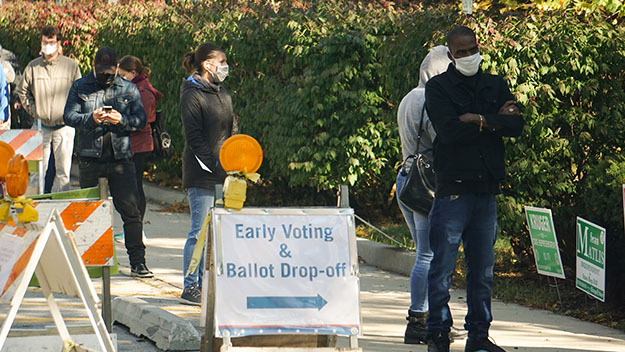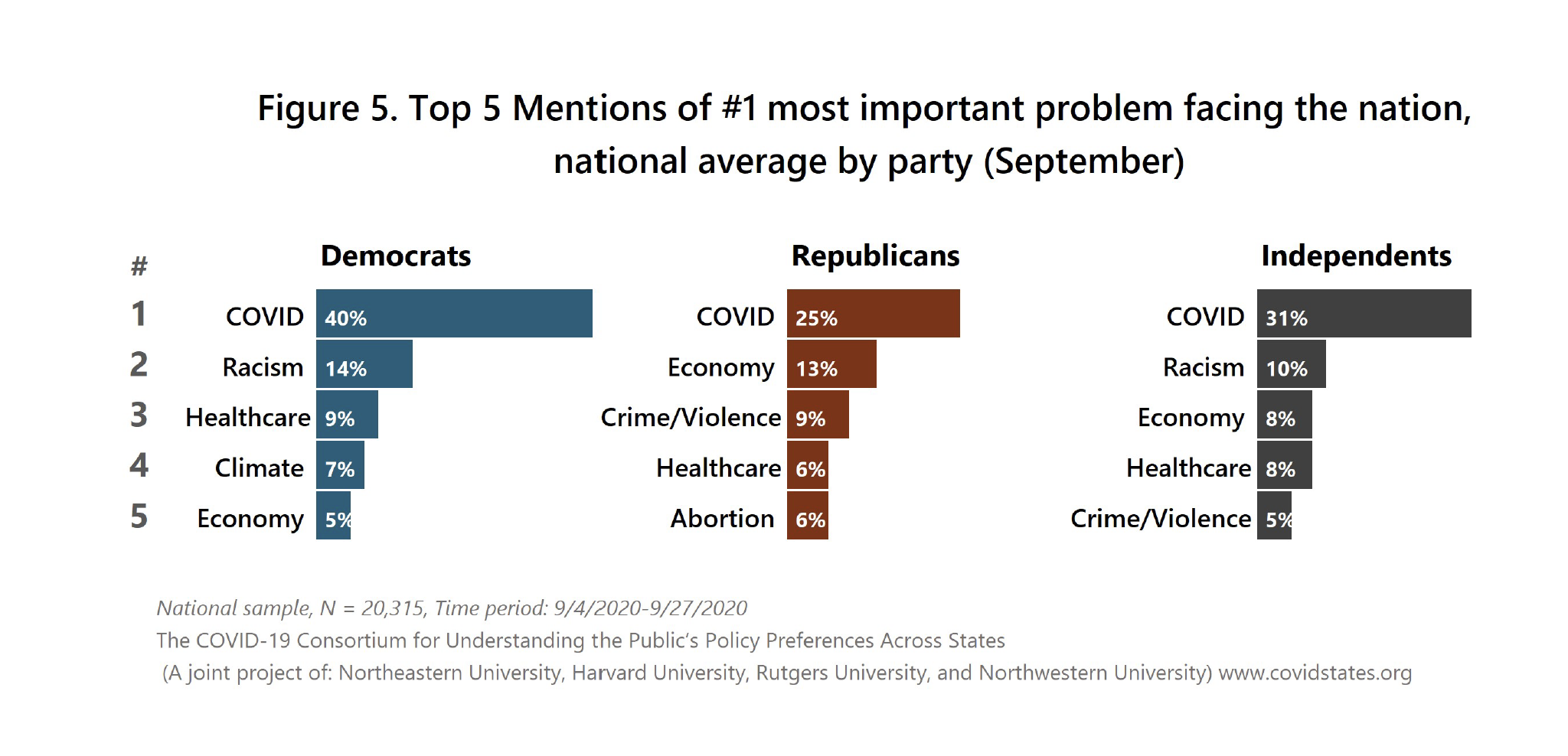Which Issues Top Americans’ Minds as They Vote?
Survey also indicates how these top issues might affect their choice for president
Get all our news

Voters wait in line at the start of early voting in Evanston, Ill., on October 20, 2020.
As the nation heads into Election Day, a survey of more than 20,000 American voters on the most important problems facing the U.S. finds their top answers, including the coronavirus at No. 1 overall, align more with issues that Democratic presidential candidate Joe Biden has focused on during his campaign.
The researchers show that COVID-19 topped the list for voters in every state but Alaska, where 16% of respondents chose climate change instead. Other first-picks mentioned were racism (10% ranked it first), the economy (8%), healthcare (7%), and crime and violence (6%).
In examining how the presidential candidates’ platforms align with voters’ top concerns, the researchers uncover that voters overall ranked issues championed by Biden first (COVID-19), second (racism), and fourth (healthcare). While President Donald Trump’s top campaign issues were ranked third (the economy) and fifth (crime and violence).
“This shows the central role of the last six months—with the pandemic and racial inequities being front and center in voters’ minds,” said IPR political scientist James Druckman.
 Druckman is part of university consortium between Northwestern, Harvard, Northeastern, and Rutgers that has been conducting “The State of the Nation: A 50-State COVID-19 Survey.” For these survey questions, the researchers combined the national responses with more than 3,600 collected from battleground states in October.
Druckman is part of university consortium between Northwestern, Harvard, Northeastern, and Rutgers that has been conducting “The State of the Nation: A 50-State COVID-19 Survey.” For these survey questions, the researchers combined the national responses with more than 3,600 collected from battleground states in October.
Top Issues State by State
When breaking down voters’ views by state, however, the researchers point to significant differences in what respondents named as the most important problem after COVID-19. Majorities in 43 out of 50 states named the following three: racism in 17 states, crime and violence in 18 states, and healthcare in 8 states.
In the 10 battleground states of Arizona, Florida, Georgia, Iowa, Maine, Michigan, North Carolina, Ohio, Pennsylvania, and Wisconsin, the survey reveals a couple of key shifts in topics and more about voters’ preferences for presidential candidates:
- In comparing results between the September and October waves, the researchers find the second-cited problem after COVID-19 shifts to issues favoring Trump in two key states:
- In September, 9% of Wisconsinites and 10% of Floridians cited racism as the top problem, and by October, majorities in both states had named the economy at 10%.
- Among those who list racism as the No. 2 problem after COVID-19, more than four out of five people say they intend to vote for Biden.
- Among those who rank crime and violence as the second problem, two out of three say they intend to vote for Trump.
The researchers also show clear partisan, age, and racial/ethnic differences:
- Democrats and independents include racism, climate change, and healthcare in their most frequently mentioned problems. Republicans, too, cite healthcare in their top five, but also crime and violence, abortion, and the economy.
- Blacks are far more likely than other racial or ethnic groups to name racism and police brutality as the top problem for the country.
- White respondents are most likely to name the economy or healthcare as their No. 2 problem after COVID-19, but Black respondents are more likely to choose racism.
- In 8 out of the 10 battleground states, voters under 30 are most likely to name racism as the nation’s most important problem. While in the other two states, the young voters chose climate change. Older voters are more likely to prioritize the economy or healthcare.
Read the complete report on the survey.
James Druckman is Payson S. Wild Professor of Political Science and IPR associate director and fellow. Previous surveys can be found here.
Photo credit: M. Konosky, istockphoto.com
Published: November 3, 2020.


